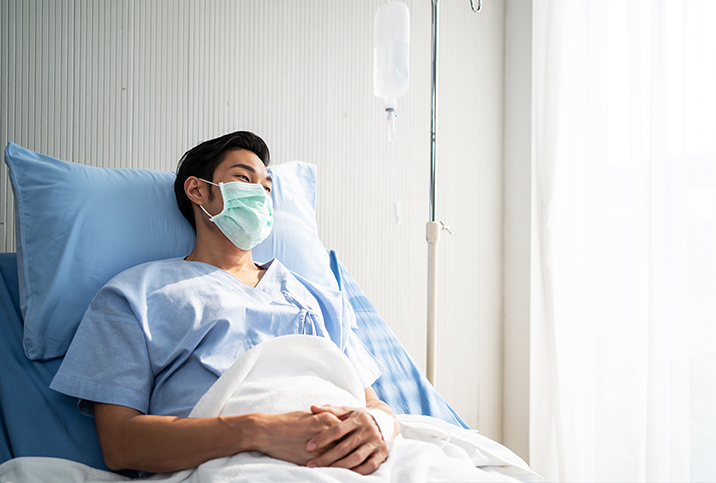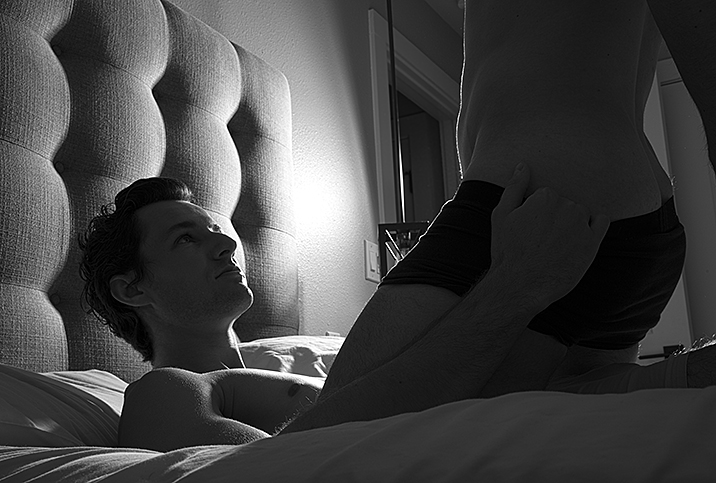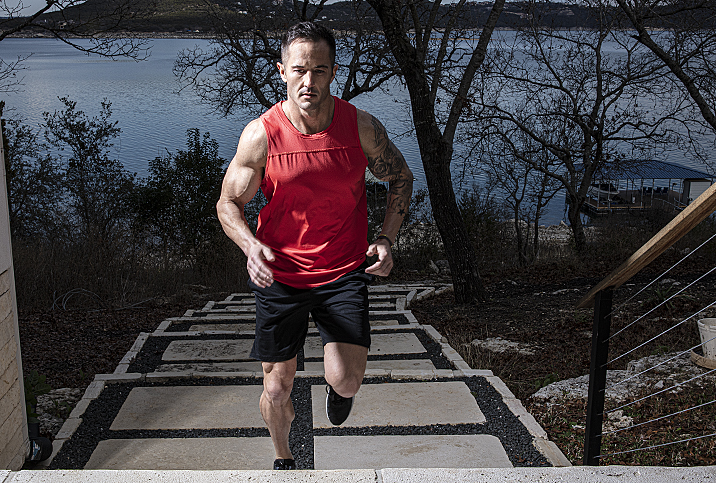Here's What to Expect in the Weeks Following Testicular Cancer Surgery

If you're preparing to have surgery to treat testicular cancer, you're probably wondering what you can expect in the aftermath and what you can and can't do. Here's an idea of what it will be like for you immediately after surgery, in the weeks afterward and beyond:
Postoperative recovery
Orchiectomy, or surgery to remove one or both testicles, is a common treatment for testicular cancer. Immediately after orchiectomy, you will be sent to a recovery room, where you will wait for the sedative to wear off. A nurse will give you pain medication if you need it. You will likely be able to go home the same day but may need to stay at the hospital overnight.
Be prepared to take it easy for a while. You will probably have mild to moderate pain, discomfort and swelling in the weeks after surgery. Your scrotum may be swollen and bruised for up to a month after surgery.
If you immediately resume normal activities after surgery, especially those involving lifting, you put yourself at greater risk for an inguinal hernia, which occurs when a small part of the intestine drops into the scrotum. You should be able to do most of your everyday activities two to three weeks after surgery. Physically strenuous activities, such as jogging, cycling and playing sports, should be avoided until you make a complete recovery. Try to avoid straining during bowel movements as well. Your doctor will let you know when you are cleared to participate in more strenuous activities.
Sex after surgery
If you had one testicle removed, you should still be able to achieve and maintain an erection and have sex after recovering from surgery. If you had both testicles removed, you will not be able to father children. Some men choose to have artificial prosthetic testicles inserted into the scrotum by the surgeon to maintain the typical appearance of the genitals.
You might experience decreased libido (sex drive) because the testicles produce the male sex hormone testosterone. The loss of testosterone from the removal of both testicles can cause hot flashes, sweating, weight gain, erectile dysfunction (ED), loss of muscle mass, osteoporosis, breast enlargement, depression and mood changes. Men who have one normally functioning testicle after surgery will need to take hormone therapy to fulfill the body's need for testosterone.
Removal of the lymph nodes
Testicular cancer is also treated through retroperitoneal lymph node dissection (RPLND). This is a surgery that removes the retroperitoneal lymph nodes located in the abdominal cavity. Following RPLND, your wound from the incision will be sore or painful, but painkillers will help. After a few days, you can usually start to move around. You will likely be able to go home after about a week.
It can take a few weeks for the wound to heal completely. As with orchiectomy, you will need to refrain from intense exercise and heavy lifting for at least six weeks. Some men are unable to father children after RPLND, which is why patients are often encouraged to consider banking sperm before the procedure.
RPLND is less common than it used to be. These days, doctors are more likely to take out lymph nodes with laparoscopic surgery, which uses a small tube with a light and a camera at the end. The surgeon inserts long, thin tools through small incisions and removes the lymph nodes. Men generally recover much faster from laparoscopic surgery than RPLND.
Severe complications after lymph node removal are uncommon. Approximately 5 to 10 percent of men may experience temporary problems such as wound infections or bowel obstructions. There is a slight chance that surgery to remove lymph nodes could damage the nerves that control ejaculation.
Follow-up care
Care for people diagnosed with testicular cancer does not end after surgery. Your doctor will continue to check that testicular cancer has not come back and manage any side effects. Follow-up care will likely include physical exams and tests.
It's not uncommon for men who have had testicular cancer to receive follow-up care for more than 10 years after their surgery. It's important to inform any doctor treating you that you have a history of testicular cancer. This includes your primary care doctor, who will be able to monitor you for potential long-term side effects. Once you have your testicular cancer surgery behind you, you can focus on recovering and enjoying the many happy years ahead.


















